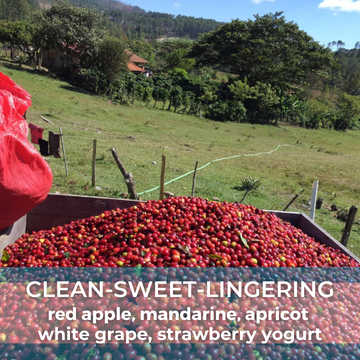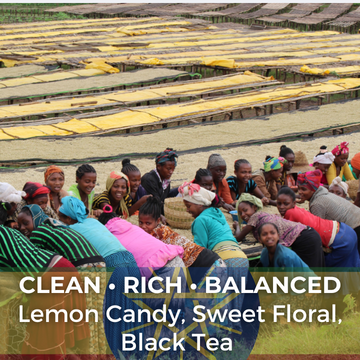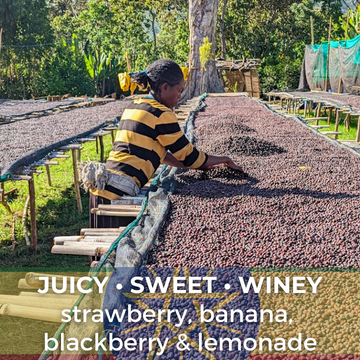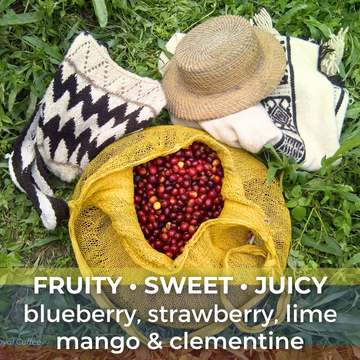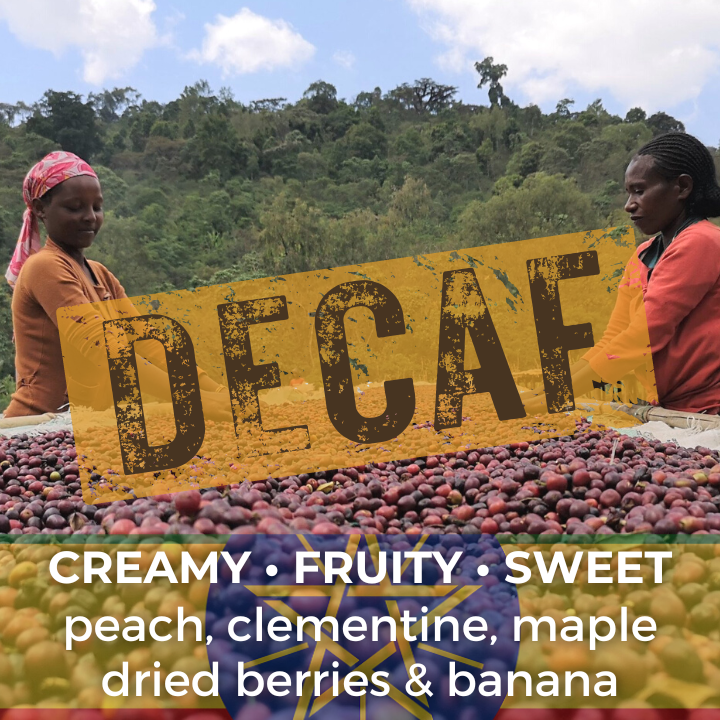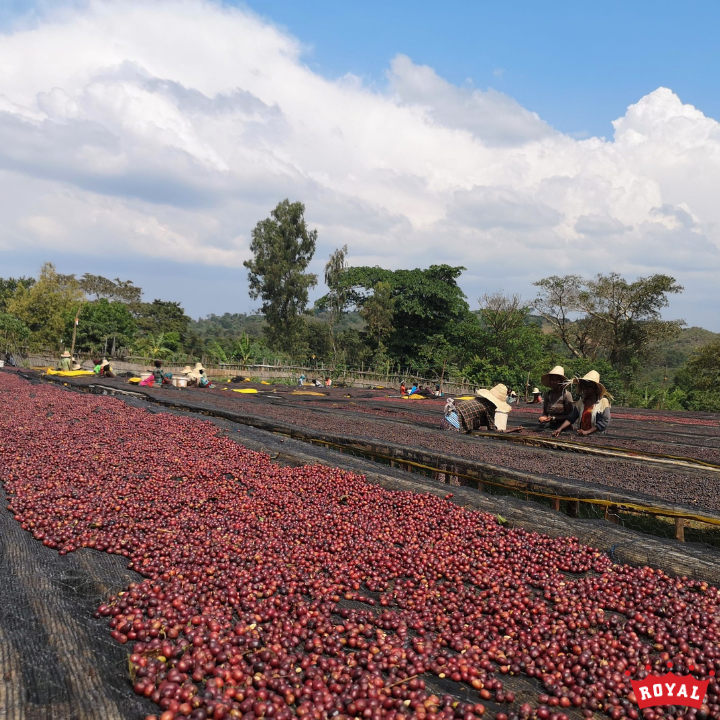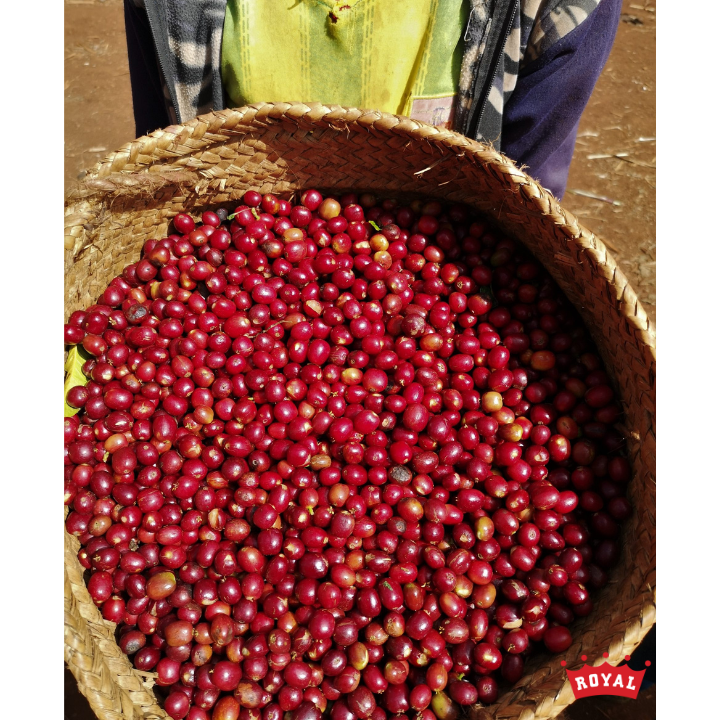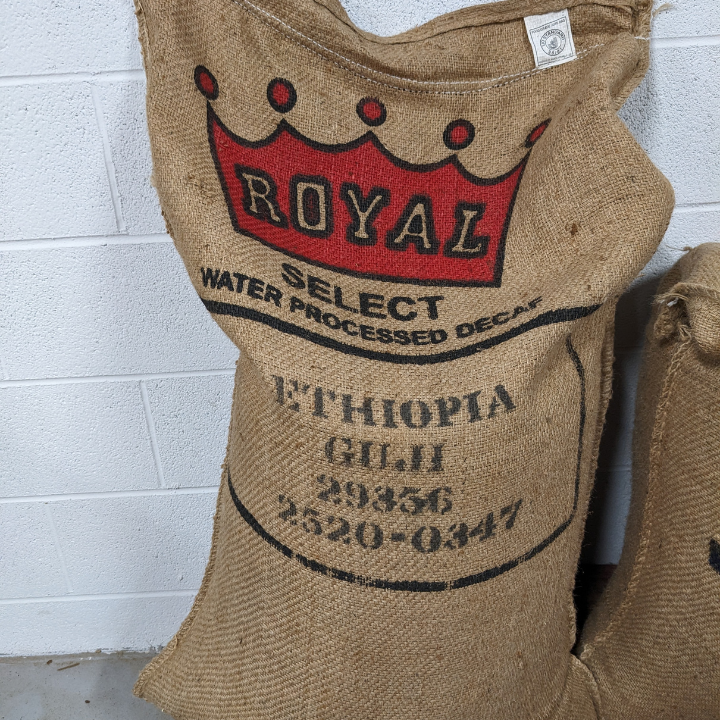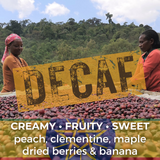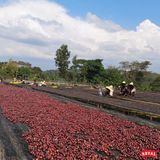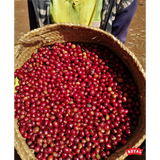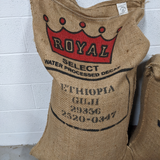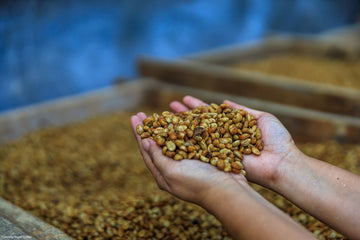Ethiopia Guji Natural Royal Select Water Decaf
Even in the world of specialty grade coffee, it’s rare to find good decaf. There, I said it. When producers, exporters and importers are motivated to make the most of each season, there’s very little incentive to spend the time and money to decaffeinate good coffee for the (relatively) small decaf market. It’s even more rare to find an importer who will commit such a large portion of their natural process Ethiopian coffee to decaf, but Royal has come through for decaf lovers.
This lot was blended from 2 washing stations processing cherry from small nearby farmers in the Benti Nenka and Uraga communities of Guji. While we weren’t sure what to expect in the cup, we were certainly surprised by how much body and texture this coffee had, even at our lightest roasts! Unusually full bodied and creamy for a natural processed Ethiopia, we also noted lovely brightness and a quick, fairly clean finish. This coffee will also come to represent by far our fruitiest decaf offering with notes of fresh peach, clementine, dried berries and a touch of banana here and there. These fruits were rounded out by rich maple and pastry tones for a nice touch of complexity. Excellent as a single origin brew or as a note of funk in your daily decaf driver! Those looking for a fun twist on their espresso should also give this a try. Royal’s coffee bar uses this decaf in their signature “Decompresso” drink.
Reminder! This coffee is raw, you must roast it before brewing
Arrival Date: December 14th, 2023. US Arrival: 2023
Acidity & Brightness: fairly bright and quite sweet
Balance & Finish: Moderately balanced with a quick finish
Body & Texture: Full body and creamy texture
Flavors: Peach, clementine, dried berries, banana, maple and pastry.
Grade: Grade 4, grown at 1,850 to 2,000 masl
Processing: Natural (dry) processed & dried in raised beds, Mountain water process decaffeinated
Grower: Smallholders in the Benti Nenka and Uraga communities
Region: Guji Zone, Oromia region
Varietals: Indigenous heirloom varieties
Recommended Roast Range: City to Full City (Light to medium)
Most folks will like this coffee best at a City+ (Light-medium) or as first crack has begun to trail off. Lighter roasts (less than a minute into first crack) will bring out a touch of florality as well as increase the vibrant acidity bringing out citrus notes as well as focusing in stone fruit at the expense of sweeter notes like pastry and maple. Medium roasts will highlight rounded sweetness in the maple and pastry tones at the expense of some of the brighter fruit notes. We don’t recommend going into second crack with this coffee.
Royal Coffee - “Coffee farms in this part of Guji tend to be very small and are traditionally diversified between coffee and subsistence crops and grown with organic methods. They are also extremely high in elevation, even for Ethiopia. To pass to Gedeo Zone, as nearly all the coffee must do to begin the trek north to Addis Ababa, one regularly reaches heights of 2600 meters or higher, and yet the scenery remains as fertile and bustling as anywhere. The highland farming communities in this part of the country can be at turns Edenic in their natural beauty, and startlingly remote.
This coffee was processed at two stations, in the Benti Nenka and Uraga communities. Natural process coffee is hand-sorted and cleaned upon arrival at the processing site; once cleaned, cherry is sun-dried on raised mesh beds for 2-3 weeks, receiving careful rotation to allow for even dehydration.
Once the coffee finished harvesting and processing, it was exported for decaffeination. Royal exclusively decaffeinates coffee by two processes: Water and Ethyl Acetate (aka “Sugarcane”) process. This coffee was sent from Ethiopia to Veracruz, Mexico, where it began its next steps at Descamex, whose proprietary decaffeination method is called Mountain Water Process. During the water process, the green coffee is pre-soaked in water to expand the beans for caffeine extraction. The hydrated green coffee is then introduced to a unique solution of concentrated coffee solubles that draw out the caffeine while minimizing the loss of flavor compounds. Once the caffeine has been removed the green coffee is re-dried and re-bagged for transport, and the extract solution is filtered of its caffeine and recycled to be used again.”
